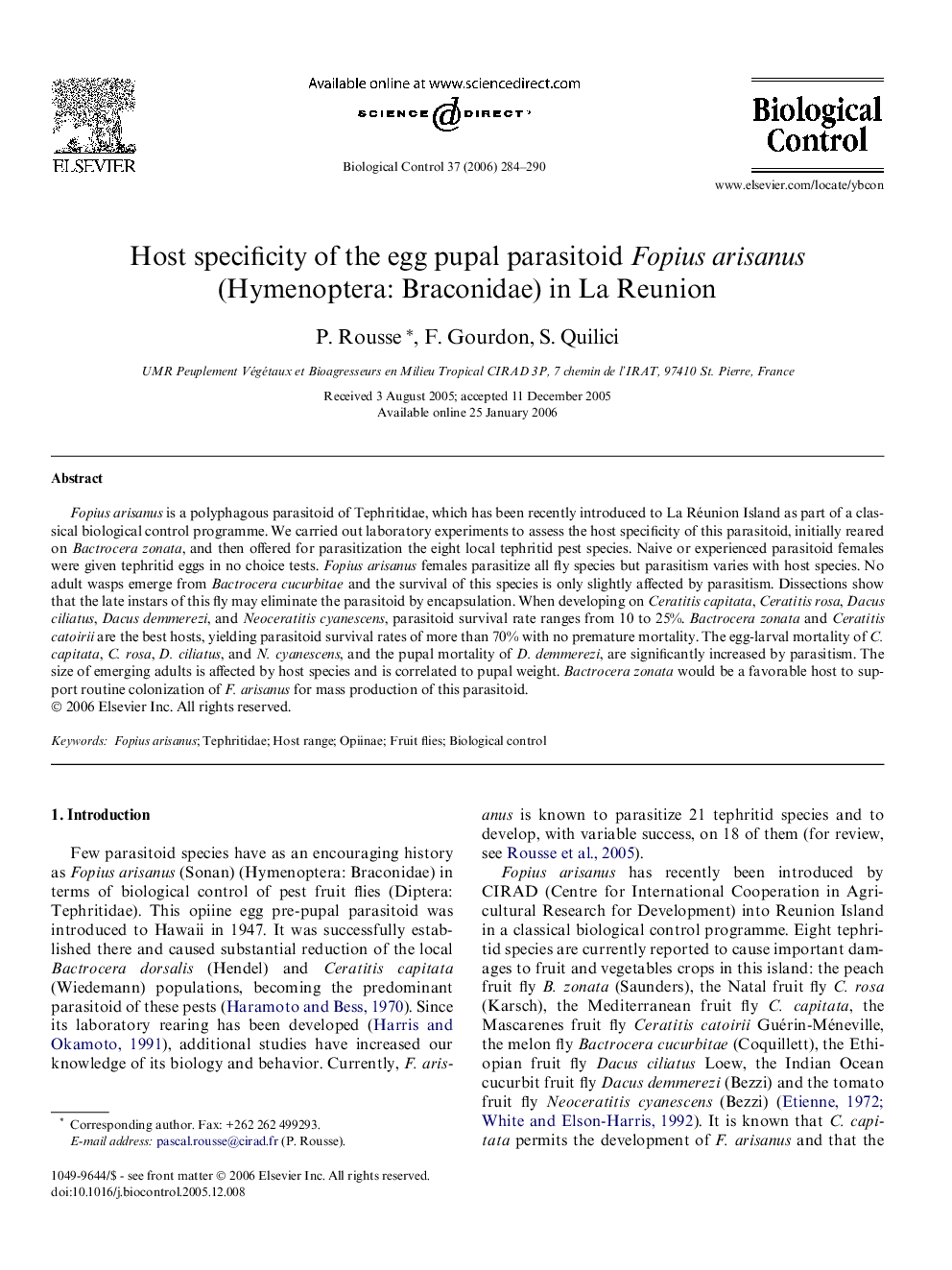| Article ID | Journal | Published Year | Pages | File Type |
|---|---|---|---|---|
| 4505340 | Biological Control | 2006 | 7 Pages |
Fopius arisanus is a polyphagous parasitoid of Tephritidae, which has been recently introduced to La Réunion Island as part of a classical biological control programme. We carried out laboratory experiments to assess the host specificity of this parasitoid, initially reared on Bactrocera zonata, and then offered for parasitization the eight local tephritid pest species. Naive or experienced parasitoid females were given tephritid eggs in no choice tests. Fopius arisanus females parasitize all fly species but parasitism varies with host species. No adult wasps emerge from Bactrocera cucurbitae and the survival of this species is only slightly affected by parasitism. Dissections show that the late instars of this fly may eliminate the parasitoid by encapsulation. When developing on Ceratitis capitata, Ceratitis rosa, Dacus ciliatus, Dacus demmerezi, and Neoceratitis cyanescens, parasitoid survival rate ranges from 10 to 25%. Bactrocera zonata and Ceratitis catoirii are the best hosts, yielding parasitoid survival rates of more than 70% with no premature mortality. The egg-larval mortality of C. capitata, C. rosa, D. ciliatus, and N. cyanescens, and the pupal mortality of D. demmerezi, are significantly increased by parasitism. The size of emerging adults is affected by host species and is correlated to pupal weight. Bactrocera zonata would be a favorable host to support routine colonization of F. arisanus for mass production of this parasitoid.
